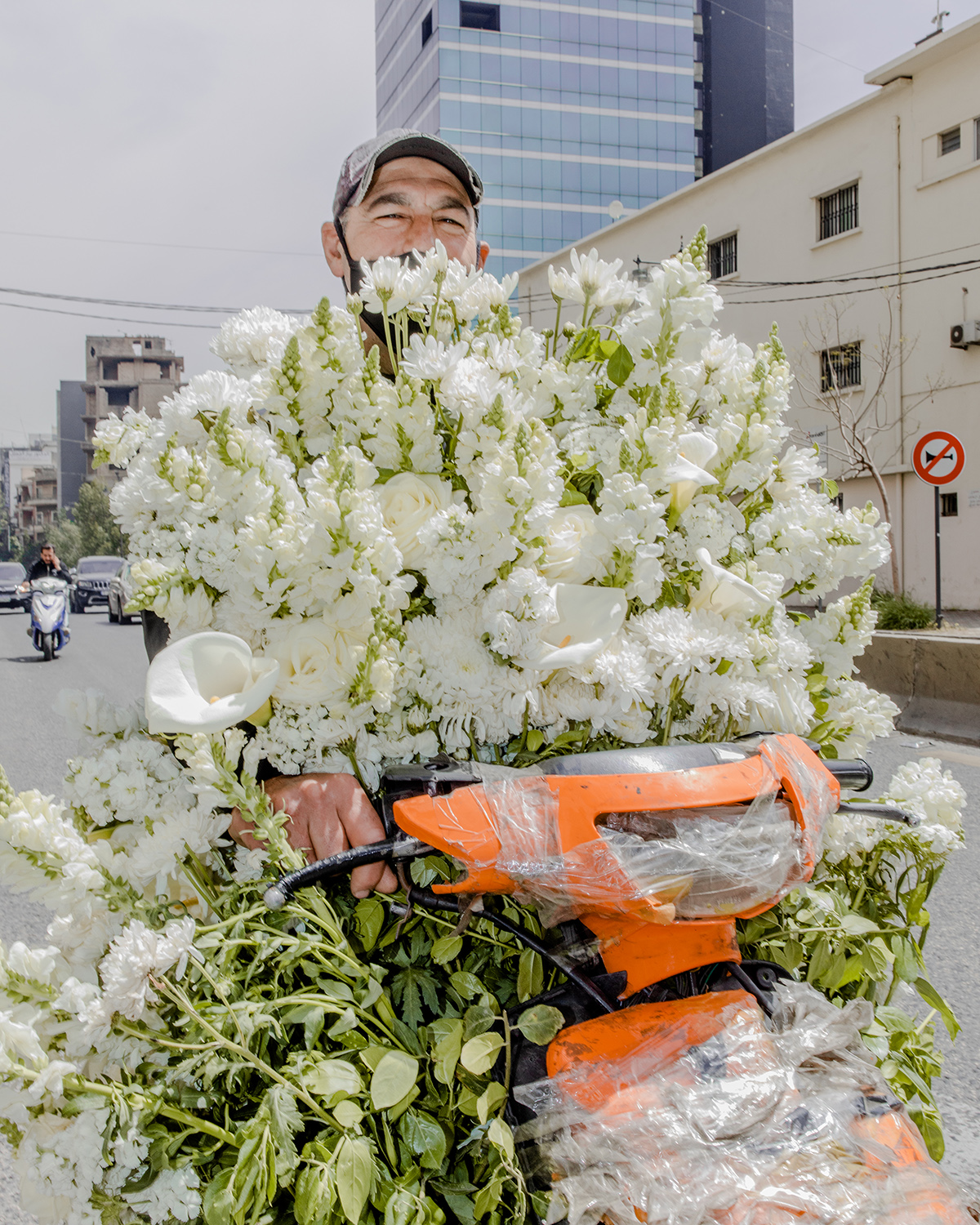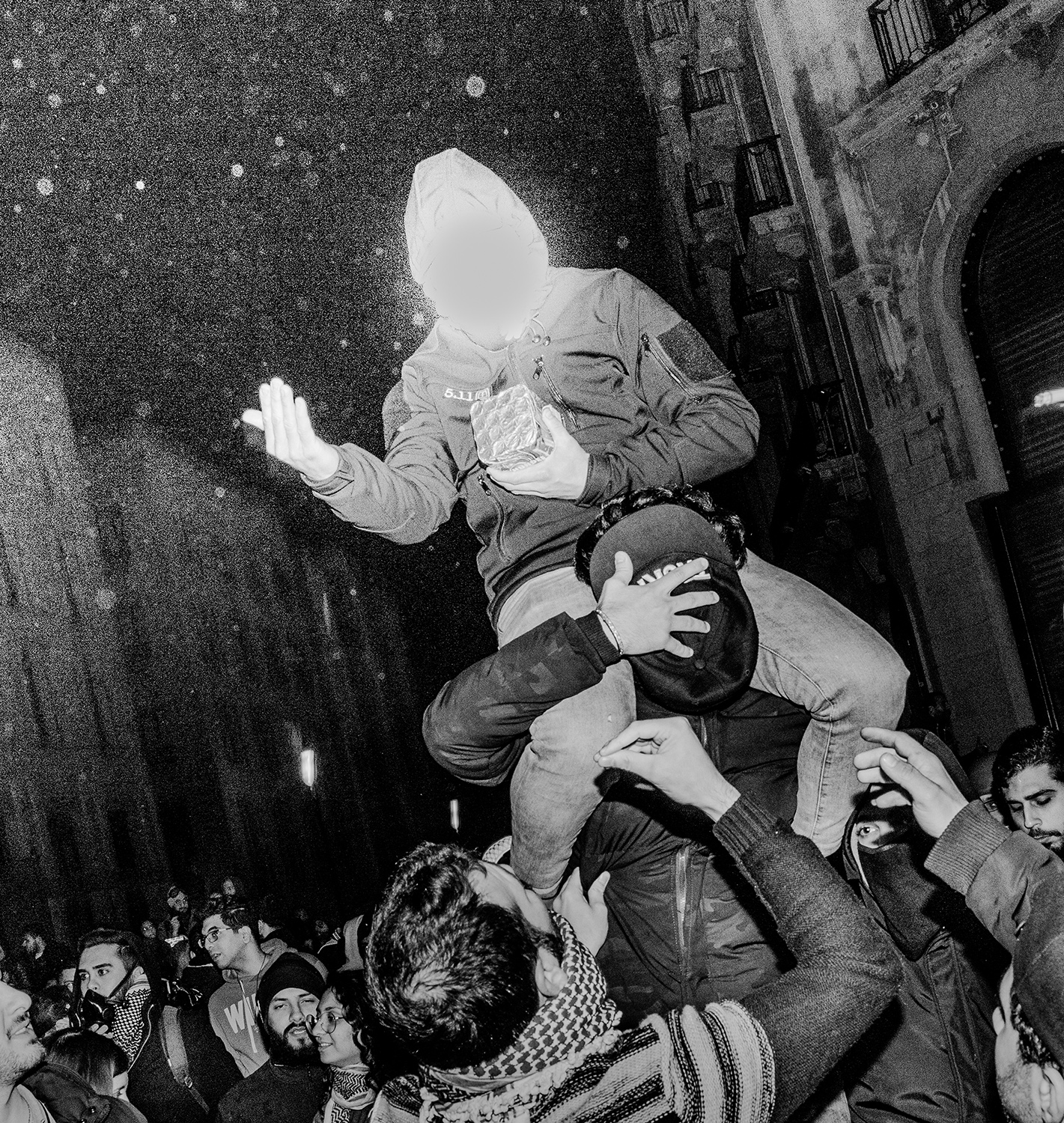Myriam Boulos: What’s Ours





This exhibition consists of photographs and text from Myriam Boulos’ first monographic book, What’s Ours. The series is Boulos’ diaristic portrait of today’s Beirut, the capital of Lebanon, both as a city and as a society in revolution. The protests in Lebanon started in 2019 as a reaction to governmental corruption and austerity – culminating with the aftermath of the devastating Beirut port explosion of August 2020.
High level political corruption drives people’s lives into a constant state of precarity, which can seem like a hopeless diagnosis without a cure. However, as Boulos shows with her photos, people and bodies are resilient, especially when they join together in resistance towards the powers that oppress them.
Boulos photographs her friends and family. To her, the act of photographing is a necessity – a way to shut out the world in turmoil and to concentrate on the tenderness of being in a moment together with loved ones. Simultaneously, she documents bodies that come together from necessity, to share intimacy within the surrounding political climate, and as a collective reaction to it. Rendering bodies both powerful and vulnerable, Boulos’ photos reveal the complexity of everyday life within state neglect. Life continues despite the surrounding oppressive structures. This fact shines a light on a system that itself needs to be cured.
Boulos’ photos in this exhibition are from 2013–2023, and the book What’s Ours was published by Aperture in 2023.
Myriam Boulos (b. 1992, Beirut) emerged from a country fragmented by war that had to reinvent itself. At the age of sixteen, she started to use her camera to question Beirut, its people, and her own position in Lebanese society. She graduated with a master’s degree in photography from the Lebanese Academy of Fine Arts in 2015. In 2021, she was awarded the Grand Prix ISEM award, and she joined the Magnum Photos cooperativ.
︎Myriam Boulos
DIAGNOSIS
PVF 202431.1.–5.5.2024
The Finnish Museum of Photography

